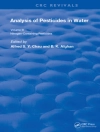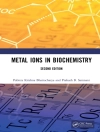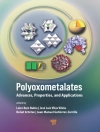Dr. Teresa Garde-Cerdan, degree in Chemical Sciences by the Universidad de Zaragoza and Ph.D. in Chemistry by the Universidad Publica de Navarra, with the title "Study of the volatile composition of red wines aged in different types of oak barrels". She was researcher in the Universidad de Castilla-La Mancha and currently, she is oenology researcher in the Instituto de Ciencias de la Vid y del Vino (Logrono, La Rioja, Spain). Her research topics have focused on the study of the influence of different agronomic and oenological practices on the aromatic, nitrogen and phenolic composition of grapes and wines. Phenolic compounds are a large family of metabolites that result from the secondary metabolism of plants. Novel insights about phenolic chemical structure, analytical methods, therapeutic effects, sensory properties, viticultural practices to modify their content and the use of these compounds found in agro-industrial wastes have been gathered in this book. A comprehensive overview on phenolic compounds and neurodegenerative disorders, highlighting their antioxidant, anti-inflammatory properties and their effects on Parkinson’s disease have been compiled. In relation to antioxidant properties, the metabolism and bioavailability of several hydroxycinnamic acids present in coffee have been studied in detail, and also the methods to determine antioxidant capacity have been included. Different strategies in order to improve the extraction and determination of phenolic compounds in a complex matrix by analytical techniques are provided, reporting problems and new analytical solutions. The role of these compounds in color stabilization and also in bitterness and astringency perception has been reported. Moreover, the interactions that take place among no volatile and volatile compounds present in wine affecting sensory perception have been briefly introduced. Furthermore, the use of cover crops in vineyards and their effects on agronomical and enological behavior – particularly, their impact on phenolic compounds – have been highlighted. Finally, the biological properties of phenolic compounds from industrial wastes have been tackled, since they are a promising alternative to transform agro-industrial wastes into a source of natural and healthy compounds.Target Audience:Researchers, technologists, academics and students.
Teresa Garde-Cerdan & Ana Gonzalo-Diago
Phenolic Compounds [PDF ebook]
Types, Effects and Research
Phenolic Compounds [PDF ebook]
Types, Effects and Research
¡Compre este libro electrónico y obtenga 1 más GRATIS!
Formato PDF ● Páginas 257 ● ISBN 9781536120547 ● Editor Teresa Garde-Cerdan & Ana Gonzalo-Diago ● Editorial Nova Science Publishers ● Publicado 2017 ● Descargable 3 veces ● Divisa EUR ● ID 7217156 ● Protección de copia Adobe DRM
Requiere lector de ebook con capacidad DRM












